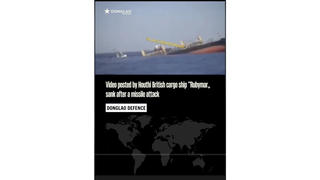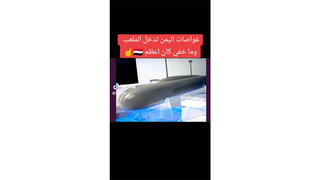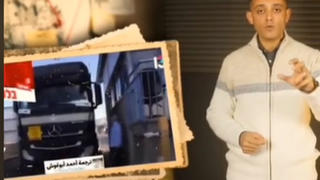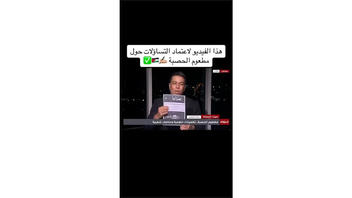
Did the measles-rubella vaccine, which Jordan plans to use to inoculate some 2.2 million schoolchildren this fall, kill 15 children in neighboring Syria in 2014? No, that's not true: The Jordanian health minister said the vaccine had been adulterated with a muscle relaxant in 2014. The World Health Organization and UNICEF vouched for the vaccine in a joint statement posted on their respective websites, saying it's "safe and effective at saving children's lives."
The claim appeared in a video (archived here) posted on TikTok on October 3, 2023, under the Arabic title "this video sums up queries on the measles vaccine" (translated from Arabic to English by Lead Stories staff).
The 8:09-minute Arabic video featured Ramzi Foudeh, president of the Jordanian Society for Genetic Engineers (JSGE), in an interview with the Jordanian public service news channel, al-Mamlaka TV. Foudeh claimed that the vaccine is the same as the one that killed 15 children in Syria in 2014.
In the video on TikTok, Foudeh says:
The U.N. had said that it regretted the death of 15 children ... because the vaccine is contaminated.
This is what the post looked like on TikTok at the time of writing:
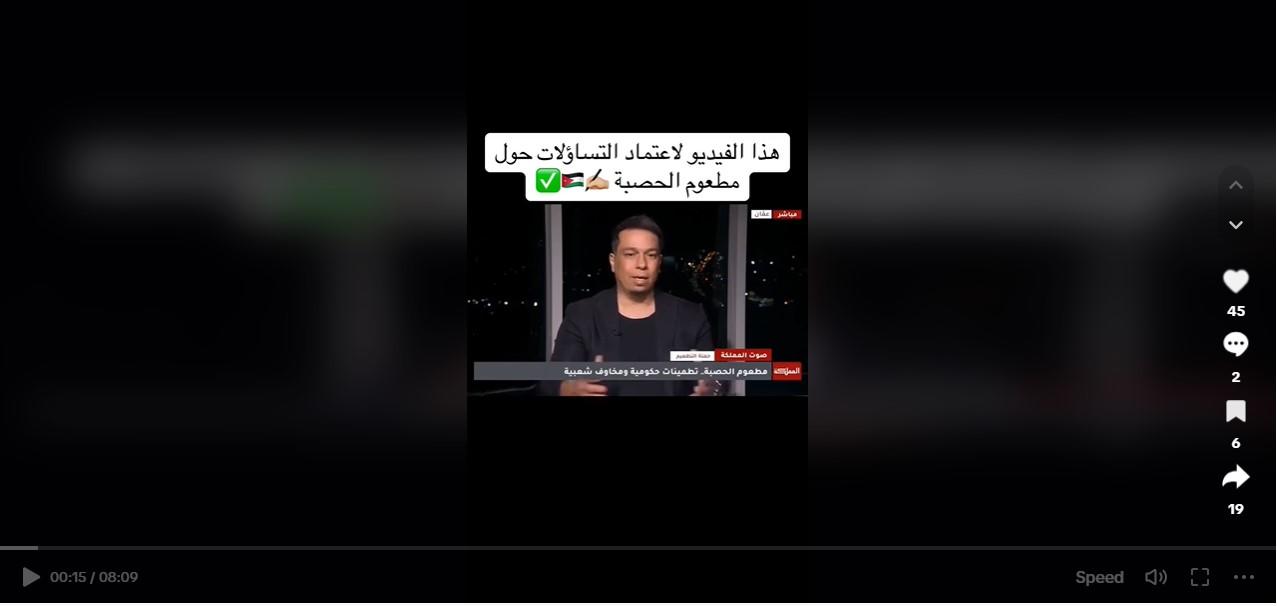
(Source: TikTok screenshot taken on Tue Oct 3 10:40:59 2023 UTC)
Refuting Foudeh's claims, Jordanian Health Minister Feras Hawari told a press conference on October 2, 2023, that the measles-rubella (MR) vaccine had no connection with the death of the 15 children in 2014. "The MR vaccine was mixed with the muscle relaxant atracurium and given to children," causing the failure of the respiratory system of 15 among them, he added in comments carried by al-Mamlaka TV and posted on YouTube.
Foudeh also said the vaccine is labelled "prequalified," which he interpreted as having failed to obtain approval from the Jordanian Food and Drug Administration (JFDA) and preceded clinical tests on its adverse effects.
Raed Shboul, the secretary-general of the Health Ministry for Primary Health Care and Epidemiology, told the Jordan Times, the country's main English-language daily, that there was no need for an approval of the MR vaccine from the Jordanian FDA. The vaccine has been used safely and effectively since 2013, with no adverse effects reported among the four million doses administered that year, he said.
Foudeh's claims, with posts on various social media sites including TikTok, asked Jordanian parents to keep their children away from the MR vaccine. The Jordanian government debunked the claims in a press conference on October 2, 2023, according to a statement by the state Petra News Agency.
Jordan will go ahead with its second phase of MR inoculation in November 2023 for schoolchildren, including Syrian and other refugee children the kingdom hosts, according to the e-news site Jordan News. The MR vaccine to be used in Jordan is manufactured by the Serum Institute of India, whose output accounts for 80 percent of all MR vaccines used in the world.
Jordanian Education Minister Azmi Mahaftha said the claims against the MR vaccine are "hocus pocus and meant to undermine our national immunization campaign against measles and rubella." In comments carried by al-Mamlaka TV and posted on YouTube on October 2, 2023, he said: "This is a regretful and painful situation because failing to inoculate the children could lead to infection that may be severe."
The joint WHO-UNICEF statement said since the COVID-19 pandemic, the rate of measles vaccination coverage in Jordan has "declined alarmingly, with approximately 112,000 children under five years of age (more than 6 out of 10 children in this age group) having missed their routine doses of measles-containing vaccine." The statement said the high number of unvaccinated individuals has already led to an outbreak of measles in April 2023, when 163 measles cases were reported in seven governorates.
Nizar Mheidat, JFDA's director-general, said on al-Mamlaka TV posted on YouTube on October 2, 2023, that the MR vaccine in Jordan is "safe" and did not need approval from his agency because it already had WHO prequalification.
The cause of the 15 deaths following vaccination in Syria in 2014 was confirmed in a September 18, 2014, BBC report. Medics in rebel-held northern Syria "accidentally" administered atracurium, instead of a solution to mix the measles vaccines with, to up to 75 children, killing 15 of them. CNN carried a similar report, saying the 15 children were under 2 years old and that another 50 "got sick" following the inoculation.
The Centers for Disease Control and Prevention in the United States recommended travelers to Jordan be "up-to-date on the routine vaccinations," including the measles-mumps-rubella (MMR) immunizations.


